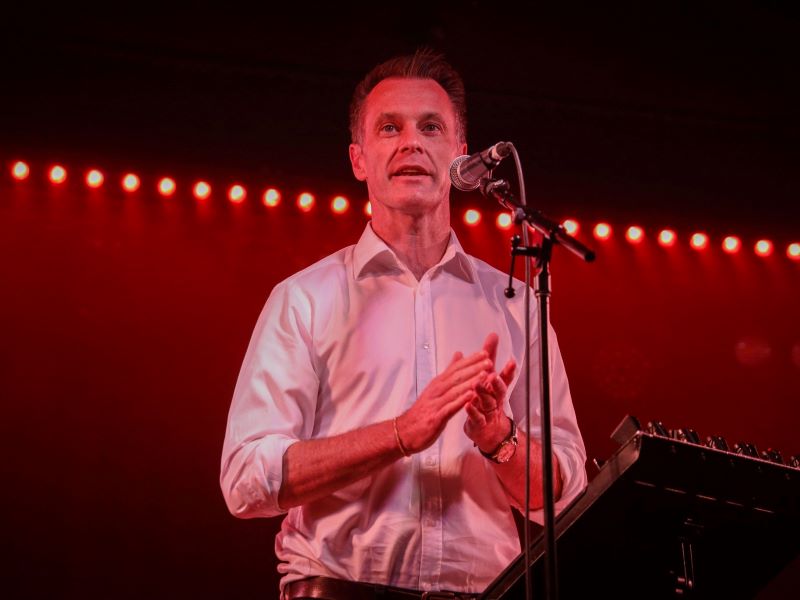The NSW government will swing the axe on the Department of Enterprise, Investment and Trade and subsume its industry, innovation, trade and investment functions into the Premier’s department.
In a move designed to return the industry and investment functions to the centre of government, Premier Chris Minns on Friday revealed sweeping changes to the department that was created by the former Coalition government just two years ago.
From July 1, the Department of Enterprise, Investment and Trade (DEIT) will be carved up and renamed, with Investment NSW and the Office of the Chief Scientist to move into the Premier’s Department.

DEIT’s arts, hospitality, tourism and the night-time economy functions will be retained by the new department, which will be known as the Department of Creative Industry, Tourism, Hospitality and Sport.
The renamed department will also take on Venues NSW, the NSW Institute of Sport and the Office of Sport, which until now have existed as part of the Department of Community and Justice.
“The changes announced today bring structure and better co-ordination to important portfolios, which together ensure our trade and investment is at the centre of government,” Mr Minns said on Friday.
Innovation, Science and Technology minister Anoulack Chanthivong, who is expected to remain in the role following the MoG, said there were significant benefits to be had from bringing Investment NSW and the Chief Scientist into the centre of government.
By shifting the industry, innovation, trade and investment functions to the Premier’s department, the government expects it will become easier for industry, investors and entrepreneurs to participate in major priorities.
The government has also called out the return of the management of unsolicited proposals to central government.
“I am focused on taking a coordinated, whole-of-government approach to working with industry and delivering on the NSW government’s priorities,” Mr Chanthivong said alongside the Premier, Arts minister John Graham, and Sport minister Steve Kamper.
But the Opposition has slammed the decision to axe DEIT, saying it speaks volumes about the Minns government’s level of interest in growing the industry, innovation, science and technology sectors.
“What we’ve seen … since Chanthivong was appointed is a minister that doesn’t care about our state’s innovators, scientists and entrepreneurs,” shadow minister for industry, innovation, science and technology Mark Coure said.
“Chanthivong’s lacklustre performance has clearly been noticed by Chris Minns and now that he’s been stripped of his own department, the question must asked, what does he actually do now?”
Innovation and industry policy expert, UTS Emeritus Professor Roy Green welcomed the move, although was critical of the government for failing to announce a major policy initiatives in its first 12 months.
“Quite frankly, anything that shifts the dial on research, innovation and industry development in Australia is to be welcomed, but more than a year after being elected the NSW government has yet to announce a single major policy initiative in this area, let alone implement one,” he said.
“That said, business, universities and the regions will look forward to the Premier taking a lead in promoting the jobs and industries of the future, with a focus on attraction of knowledge-based net zero investment and the development of place-based innovation ecosystems across the state.
“While NSW may be starting from behind, it has the skills and capability to be a world competitive centre for energy transition and economic diversification, including in advanced manufacturing.”
The Machinery of Government change comes six months after a major restructure of Investment NSW, in which as much as 25 per cent of its workforce – 75 staff – were expected to be let go or redeployed across government.
Around $180 million was slashed from DEIT’s budget prior to the 2023 state election by the then Coalition government, which also cut $423 million from the Future Economy Fund (FEF) just months after announcing it.
In last year’s Budget, the Minns government reprioritised the remaining funding in the FEF to improve the state’s bottom line. The reprofiled FEF was to be used to fund new apprenticeships.
DETI was established in April 2022 to, in the words of then premier Dominic Perrottet, “channel our home-grown research into economic opportunities”. The former government also created the role of Science, Innovation and Technology ministers.
According to a 2022 audit report, its creation had a “significant administrative impact” on agencies like the then Department of Premier and Cabinet and the Department of Customer Service.
Investment NSW is currently consulting with the sector on a new Innovation Blueprint that will look to cultivate a more collaborative, less transactional relationship with innovators across the state.
“I want to move away from the former government’s view that somehow its innovative just to hand out cash, it’s more than that,” Mr Chanthivong told a NSW Budget Estimates hearing last month.
“It’s about engaging with our industry stakeholders; it’s about growing the ecosystem; it’s about determining where government can best deploy its resources without actually crowding out what the market does best.”
The blueprint forms part of a wider reset of industry policy, with the state seeking to align itself with the seven priority areas of the federal government’s $15 billion National Reconstruction Fund.
On Thursday, Primer Minister Anthony Albanese unveiled plans for a more interventionalist industry policy to help Australia compete with programs introduced by advanced economies like the United States, Japan and Korea.
Do you know more? Contact James Riley via Email.

